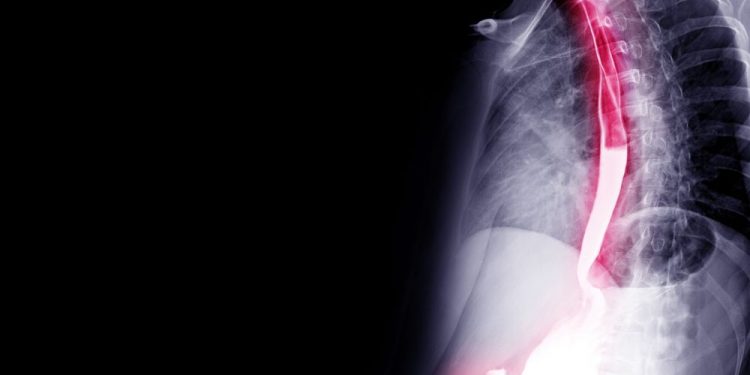A swollen esophagus is caused by irritation to tissues that line the esophagus. This may occur from acid reflux, allergic reactions or a weakened immune system. The most common cause of swollen esophagitis is acid reflux disease, or gastroesophageal reflux disease (GERD). It is also commonly caused by overuse of over-the-counter or prescription medications like aspirin and ibuprofen, a condition called NSAID overdose. Other causes include chemical irritation, a burning sensation after eating and swallowing, and throat pain. Infections of the esophagus, such as bacterial or viral infections or fungal infections, can also be the cause.
Your doctor will examine you and ask about your symptoms. Depending on what type of esophagitis you have, he or she will order different tests to identify the cause.
If you have acid reflux esophagitis, your provider will check the lining of your esophagus with an endoscope (a thin tube with a camera on the tip). This tool is inserted into your mouth and down to the first portion of your stomach. This procedure is called esophagogastroduodenoscopy, or EGD. Your provider may also put sensors or thin wires down into your esophagus to gather information over 1 to 3 days. These can help identify how much stomach acid backs up into your esophagus, if narrowing is present and whether you have a hiatal hernia.

During an allergy test, your allergist will check the lining of your throat and the walls of your esophagus to see how healthy they are. If you have a food allergy, your allergist will recommend that you eliminate foods from your diet that trigger your symptoms. You will also take allergy medication to reduce your symptoms. If you have a weakened immune system, your allergist will recommend taking fluticasone sprayed in your throat and swallowed or a slurry of oral budesonide to reduce inflammation and swelling in the esophagus.
Other tests for esophagitis may include a complete blood count and a biochemical profile, which look at the amount of red and white blood cells and platelets in your body and detect any abnormalities, such as a low white blood cell count or infection. You may also have a chest x-ray to look for narrowing or other problems, a tissue biopsy and a barium swallow study, which involves drinking a solution or pill that coats your esophagus and stomach so they can be seen on an X-ray.
Treatments for esophagitis vary by cause and can include making changes to your diet, taking medicine and/or having procedures. Acid-blocking medicines, such as antacids, H2 blockers and proton pump inhibitors can relieve acid reflux. Anti-inflammatory medications, such as ibuprofen and other over-the-counter or prescription NSAIDs can ease the inflammation from acid reflux. Your allergist may suggest other medications to treat your food allergies or an illness that is causing the allergy, such as monoclonal antibodies that signal your immune system to stop inflammation, such as dupilumab (Dupilumab), which was recently approved by the FDA for eosinophilic esophagitis (EoE). If the lining of your esophagus has been damaged, a procedure called esophageal dilatation can stretch the tissues to restore normal size.









